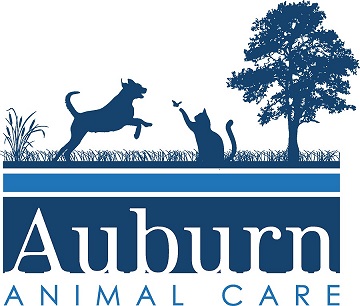Site Accessibility Features: Skip to page menus
Site Menus Section Skip to page content

Site Accessibility Features: Skip to page menus
Site Menus Section Skip to page content

Jul 02 2020
Home » News » Pets And Covid 19
With over 9 million cases reported globally, COVID-19 continues to impact our daily lives. While there’s no evidence that animals playing a significant role in spreading the virus, the FDA is warning pet owners that in some situations, people can give the virus to their pets.
In a new video released by the Food and Drug Administration (FDA), pet owners are being reminded that people can spread the virus to their animals.
Cats and ferrets are more likely to get the virus and seem to be able to spread the virus to other animals of the same species (i.e., cats to cats and ferrets to ferrets). Dogs are less likely to get the virus. A number of studies on other animal species (mice, pigs, chickens, and ducks) show that these animals do not seem to become infected or spread the infection; however, more studies are needed to understand more about how and if different animals could be affected by the virus that causes COVID-19.
As recommended by the FDA and the Centers for Disease Control and Prevention (CDC), there are steps you can take to protect pets from being infected, whether from you or your family members, or from other people you may encounter while out for a walk with your dog.
If you have been diagnosed with COVID-19 or you are waiting for test results, avoid direct contact with your pets. If possible, have other family members care your pets until you are well again. If you must care your pet yourself follow these guidelines:
If possible, hire a pet sitter and/or dog walker to care for your pets if you are sick with COVID-19.
Until more information is known about how the virus affects different animals, pets must be treated the same ways as you would other family members in order to prevent them from a possible infection. This, in part, means keeping your pets away from other pets:
July 6th also marks World Zoonoses Day—a day to remember that animals (pets included!) can be a source for human diseases. Zoonoses or zoonotic diseases, are diseases that pass from animals or insects to humans. Zoonotic diseases can range from mild skin infections (such as ringworm) to deadly diseases such as rabies and anthrax. Evidence shows the virus SARS-CoV-2 (the virus causing COVID-19) originated in the bat, the pangolin (or both), and crossed to humans. Therefore it is considered a zoonotic disease. Anyone who comes in contact with animals—whether that be a pet owner, a farm or zoo worker, attendees of agricultural fairs, travelers, etc.—are at risk of contracting a zoonotic disease. To keep you and your family members safe from diseases that animals carry, practice healthy hygiene around pets and other animals by:
For all the latest updates on COVID-19 and to keep informed on the latest advice, check the CDC, FDA, and WHO websites.
LifeLearn News
Note: This article, written by LifeLearn Animal Health (LifeLearn Inc.) is licensed to this practice for the personal use of our clients. Any copying, printing or further distribution is prohibited without the express written permission of Lifelearn. Please note that the news information presented here is NOT a substitute for a proper consultation and/or clinical examination of your pet by a veterinarian.
Connect with us and one of our team members will be happy to assist you.
Phone: 440-543-1311 Fax: 440-973-9101 Email: info@auburnveterinaryhospital.com
Email UsRequest An Appointment10323 East Washington Street Chagrin Falls, Ohio, 44023
Monday: 8 am – 6 pm Tuesday: 8 am – 6 pm Wed: 8 am – 5 pm Thurs: 8 am – 6 pm Fri: 8 am – 5 pm Sat & Sun: Closed
Get DirectionsOur app features unique technology which allows you to access your pet’s medical records, book real time appointments, get Health Certificates, and much more.
© 2025 Veterinarians in Chagrin Falls | Auburn Animal Care. Provided by Covetrus | Powered by LifeLearn WebDVM